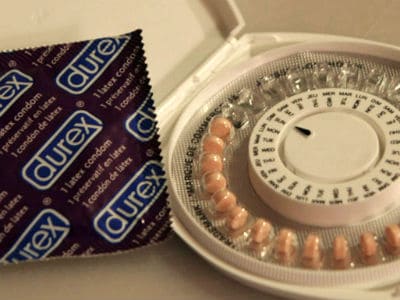
A call for dual contraception
Couples with only one HIV-positive partner seem to be the cause of the majority of new HIV transmissions in Kenya. Education efforts directed towards this group should address both preventing HIV and unwanted pregnancies, says one doctor.
Approximately six per cent of married or cohabitating couples in Kenya are in a sero-discordant relationship – wherein one partner is HIV-positive and the other HIV-negative.
People in discordant relationships who have sex with other partners are more likely to transmit, or get infected with, HIV because the negative partner will only tend to use a condom with their HIV-infected spouse and be less diligent when it comes to their other partners, according to Dr. Kenneth Ngure, who researched sero-discordant couples in the towns of Thika and Eldoret.
‘Medical reports have shown that most people who get infected while in a discordant relationship have different types of the virus from their spouses,’ says Dr. Ngure underlining the importance of educating sero-discordant couples to consistently use condoms to prevent HIV transmission.
Preventing both HIV and unwanted pregnancies
But public education efforts should also focus on the prevention of unplanned pregnancies, according to Dr. Ngure.
Currently there is a 25 per cent unmet need for modern contraceptive methods, such as the family planning pill, for all married women in Kenya. HIV-positive women in sero-discordant relationships are particularly underserved.
‘Service providers tend to imagine that we do not have another life outside of HIV. But we are mothers and wives as well,’ says Gladys Njira (30), a resident of Eldoret, who has been in a discordant relationship for over eight years and has never used contraception apart from condoms.
Misconceptions around contraception
The findings of Dr Ngure’s study showed that most women, especially those living with HIV, are scared off by the side-effects of contraceptives such as the pill when combined with antiretroviral (ARV) treatments.
‘I was using the pill, which had few side-effects on me, before testing positive. But now with the daily HIV treatment, the load is too much,’ claims Gloria Mukami (28) from Thika whose husband sometimes refuses to use condoms or tears them during sex. Her only current family planning option is the over-the-counter emergency pill, also known as e-pill, which should not be used as a regular contraceptive measure.
Other myths also hinder the wider use of contraceptives that specifically prevent unwanted pregnancy. For example, overweight women fear that the IUD (or ‘the coil’) will disappear into their bodies and somehow harm them. Underweight women fear that the IUD will prick their sexual partners during intercourse.
Myths be gone
Dr. Ngure is calling for more intensified education to encourage women living with HIV to embrace dual contraceptive. ‘It is imperative that women are educated on longer-acting contraceptive methods in order to reduce barriers associated with misconceptions associated with these family planning methods.’
Are you HIV-positive and using dual contraception? Share your experience below or join the discussion on Facebook.
